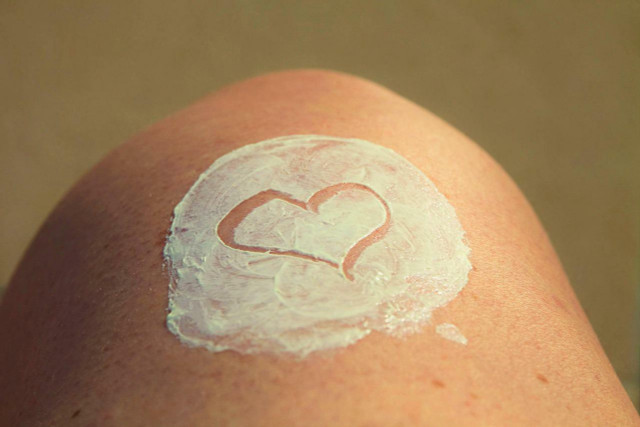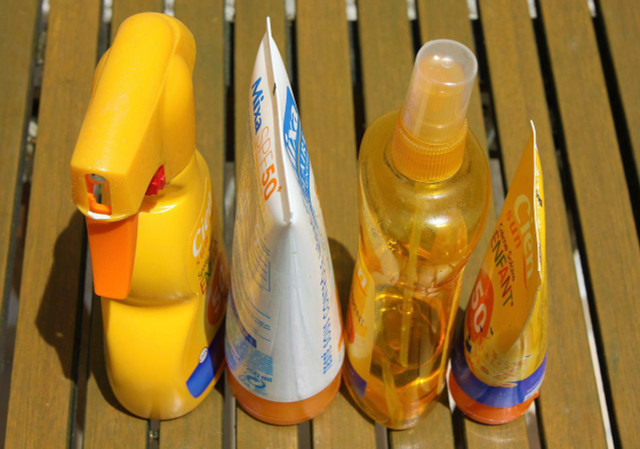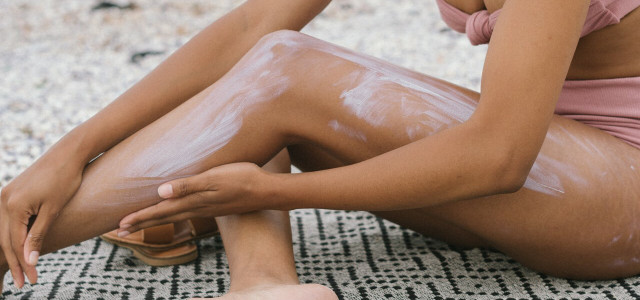When the sun is suddenly out and you only have that one bottle of sunscreen from last year — and it's past its expiration date. But can you use expired sunscreen, should you, and is it still better than no sunscreen at all?
Spending time in the sun without proper protection can result in premature skin aging, skin damage or, worst of all, skin cancer. By regularly applying sunscreen you can protect yourself from harmful UV radiation while enjoying time outdoors.
As noted by the Skin Cancer Foundation, everyone should use sunscreen, and do so every day. That’s because the sun damages your skin not only when you get a sunburn, but over the span of your lifetime, and the sun’s radiation reaches us, even if it’s cloudy. But not all sunscreens are the same — some are safe to use even beyond their expiration date, while others contain ingredients that can have adverse health effects if you keep them for too long.
If this sounds overly complex for a matter as simple as choosing sunscreen, don’t worry! Here’s what you need to know about finding the right sunscreen, the adverse effects of expired sunscreen and staying safe in the sun. We’ll also consider which type of sunscreen is safe for the environment.
Using Expired Sunscreen: Physical vs Chemical Sunscreen

(Foto: CC0 / Pixabay / chezbeate)
Whether or not you can use sunscreen that has expired depends on its ingredients and how you stored it. Let’s start with the ingredients.
First we need to distinguish between so-called physical (also known as mineral sunscreen) and chemical sunscreen. Whereas the former sits on top of your skin, physically deflecting the sun’s rays, the latter uses chemical UV filters that are absorbed into your skin to protect you from UV radiation. Is physical sunscreen as effective as chemical sunscreen? Absolutely! It contains different mineral ingredients, including zinc oxide and titanium dioxide, which the FDA recently confirmed are generally recognized as safe and effective. Read more about the differences in our guide How to Choose UV Protection: Physical Sunscreen vs. Chemical Sunscreen.
Chemical sunscreen: What you need be aware of
One of the problems with chemical sunscreen that studies have pointed out is that some of its ingredients are absorbed into the body’s bloodstream at concentration levels higher than the FDA’s safety threshold — and that these chemicals can disrupt hormones in the body, as Yale Medicine news states.
They can also cause allergic reactions. According to the EWG, the EU has recommended capping the concentration levels of two of these toxins (Oxybenzone and Homosalate) far below the concentration levels legally allowed in products sold in the US.
Can You Use Expired Chemical Sunscreen?
When it comes to the expiration date of chemical sunscreen, one ingredient used in many commercial sunscreen products you should remember is Octocrylene. This is a chemical UV filter which, a recent study published in the scientific journal Chemical Research in Toxicology has shown, over time degrades into a carcinogen called Benzophenone.
Simply put, Octocrylene offers protection against sunburns and skin cancer and is safe to use for a certain amount of time, before turning into a substance that is suspected to increase your risk of cancer.
Hence, it is especially important to pay attention to expiration dates on chemical sunscreens.
Can You Use Expired Mineral, or Physical, Sunscreen?
Mineral sunscreen products (or those without Octocrylene) are safe to use beyond their expiration date, though you need to be careful because they may not be as effective after expiring. Typical expiration dates of sunscreen range between 12 and 30 months. If your sunscreen has a shelf life of at least three years, the expiration date needn’t be provided. In this case, we recommend you write the date you bought the sunscreen on the bottle.
Moreover, while your sunscreen may keep longer than its expiration date, the opposite may also be the case. So, should you use last summer’s half empty bottle of sunscreen? If the bottle is frequently exposed to the sun or heat (brought in your beach bag or your hot car), the sunscreen loses its efficacy much faster, so you should consider throwing it out before its expiration date. Changes in texture and/or smell are another indicator of sunscreen gone bad.
Choosing Sustainable Sunscreen



(Foto: CC0 / Pixabay / chezbeate)
Some of the chemicals used in sunscreen products are not only linked to health concerns but also have a severe impact on marine ecosystems. In fact, several US states and territories have banned sunscreens containing certain chemical ingredients, because they are among the causes for coral bleaching.
A 2013 study published by the American Chemical Society has even determined the occurrence of UV filters, specifically Octocrylene, in marine mammals. The Haereticus Environmental Laboratory, a non-profit scientific organization, has created a certification seal for environmentally friendly sunscreen and offers a detailed list of pollutants you should avoid. You can also consult our article on how to choose UV protection, referenced above, for a list of sustainable sunscreen options.
If somewhat more expensive, certified organic mineral sunscreen products are both healthier for your skin and safer for the environment. Also, you can use them over longer periods of time (provided that they are stored the right way), thereby reducing waste.
Tip: fill a small amount of your sunscreen into an empty bottle or makeup jar to take with you when you go out for a longer period of time. That way, your sunscreen won’t be exposed to the heat every time you need to take it with you when spending a day out in the sun.
How Should You Dispose of Leftover Sunscreen?
Problematic ingredients contained in sunscreen may not only leach from your skin but also by disposing them the wrong way. Don’t just throw your old sunscreen bottles in the trash! Check with your local waste management services on how to dispose of household hazardous waste such as personal care products. They may have a special drop-off site or pick-up program for such items or they can tell you how to dispose of them correctly.
More Tips on Staying Safe in the Sun



(Foto: CC0 / Pixabay / Tama66)
Besides regularly applying sunscreen with a high sun-protection factor (SPF) to your exposed skin parts, there are several additional precautions you can take to stay safe in the sun:
- Bring a sun cover for your head that suits your needs: a large sun hat, base cap, or umbrella will do the trick. If you’re going for a run or a long hike, a bandana that you can soak in water if it gets too hot outside is also a good option.
- Wear sunglasses that offer 100 percent UV protection — not just tinted shades. Learn more: Sunburned Eyes: How to Tell If You Have Photokeratitis
- Stay hydrated! While you should always make sure you drink enough, it is especially important to carry enough water with you when you’re exposed to the sun. In some situations, a Pedialyte drink can even be more effective at avoiding dehydration with water. Try our homemade pedialyte recipe for a more low-sugar option.
- Wear light materials that don’t make you sweat (seek natural fibers) but cover critical parts of your skin.
Read more:
- UV Index: Meaning for Your Skin, Eyes and Overall Health
- Sunburn Home Remedies: 3 Natural Treatment Methods
- Nutrition Secrets: Foods That Are Good for Skin, Hair, and Nails
Important Information regarding Health-related Topics.
** Links to retailers marked with ** or underlined orange are partially partner links: If you buy here, you actively support Utopia.org, because we will receive a small part of the sales proceeds. More info.Do you like this post?








